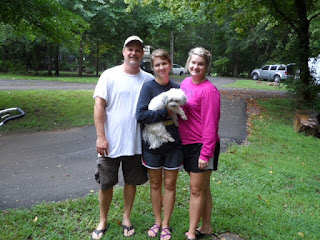Friday, September 21, 2012
Cannery Row, John Steinbeck (with an appreciative nod to Matt Green)
"Once when Doc was at the University of Chicago he had love trouble and he had worked too hard. He thought it would be nice to take a very long walk. He put on a little knapsack and he walked through Indiana and Kentucky and North Carolina and Georgia clear to Florida. He walked among farmers and mountain people, among the swamp people and fishermen. And everywhere people asked him why he was walking through the country.
Because he loved true things he tried to explain. He said he was nervous and besides he wanted to see the country, smell the ground and look at grass and birds and trees, to savor the country, and there was no other way to do it save on foot. And people didn’t like him for telling the truth. They scowled, or shook and tapped their heads, they laughed as though they knew it was a lie and they appreciated a liar. And some, afraid for their daughters or their pigs, told him to move on, to get going, just not to stop near their place if he knew what was good for him.
And so he stopped trying to tell the truth. He said he was doing it on a bet—that he stood to win a hundred dollars. Everyone liked him then and believed him. They asked him in to dinner and gave him a bed and they put lunches up for him and wished him good luck and thought he was a hell of a fine fellow. Doc still loved true things but he knew it was not a general love and it could be a very dangerous mistress."
"Once when Doc was at the University of Chicago he had love trouble and he had worked too hard. He thought it would be nice to take a very long walk. He put on a little knapsack and he walked through Indiana and Kentucky and North Carolina and Georgia clear to Florida. He walked among farmers and mountain people, among the swamp people and fishermen. And everywhere people asked him why he was walking through the country.
Because he loved true things he tried to explain. He said he was nervous and besides he wanted to see the country, smell the ground and look at grass and birds and trees, to savor the country, and there was no other way to do it save on foot. And people didn’t like him for telling the truth. They scowled, or shook and tapped their heads, they laughed as though they knew it was a lie and they appreciated a liar. And some, afraid for their daughters or their pigs, told him to move on, to get going, just not to stop near their place if he knew what was good for him.
And so he stopped trying to tell the truth. He said he was doing it on a bet—that he stood to win a hundred dollars. Everyone liked him then and believed him. They asked him in to dinner and gave him a bed and they put lunches up for him and wished him good luck and thought he was a hell of a fine fellow. Doc still loved true things but he knew it was not a general love and it could be a very dangerous mistress."
Thursday, September 20, 2012
“There are some good things to be said about walking. Not many, but some. Walking takes longer, for example, than any other known form of locomotion except crawling. Thus it stretches time and prolongs life. Life is already too short to waste on speed. I have a friend who's always in a hurry; he never gets anywhere. Walking makes the world much bigger and thus more interesting. You have time to observe the details. The utopian technologists foresee a future for us in which distance is annihilated. … To be everywhere at once is to be nowhere forever, if you ask me.”
Ed Abbey
Subscribe to:
Posts (Atom)

















































